The 2015 ACR/ARHP Annual Meeting will bring more than 15,000 physicians, health professionals, and industry partners from more than 100 different countries together in San Francisco to learn more about the latest in rheumatologic research and care, including preventing, diagnosing, and treating rheumatic diseases and their comorbid conditions.
Attendees will choose from more than 400 educational sessions offered in diverse learning formats such as didactic lectures, debates, interactive sessions, poster tours, and workshop sessions. Attendees will find sub-specialty sessions targeted to more specific areas of interest — Educators, Health Professionals, Fellows in Training, Pediatric Rheumatologists and Practice Managers.
To assist attendees in scheduling their time to make the most of the meeting, members of the Annual Meeting Program Committee, who also happen to be recognized thought leaders in this year’s sub-specialty areas, offered their thoughts on this year’s program and some of their recommended “must-attend” sessions.
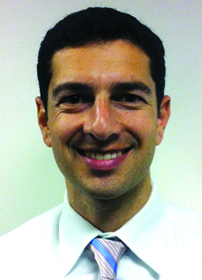
EDUCATORS
The Educator sessions help rheumatology educators stay at the forefront of developments in medical education, introduce educators to novel and emerging educational techniques, and continue to build a community of educators within the field.
“The landscape of medical education is rapidly changing,” said Eli Miloslavsky, MD, of Massachusetts General Hospital in Boston. “This year’s Educator sessions were selected to focus on the broad changes in medical education and the future of the field, as well as recent advances in medical education and how to translate those advances into effective teaching.”
That focus will be apparent right from the meeting’s start, he said, as Daphne Koller, PhD, will deliver this year’s Opening Lecture, Education at Scale: Beyond an Experiment, on Saturday, Nov. 7.
“With the popularity of massive open online courses and the advent of new technologies for providing education on a much bigger scale, this is a topic I think touches everyone in our field,” Dr. Miloslavsky said. “Dr. Koller is a leader in the field, and I look forward to what promises to be a unique and enlightening talk about emerging trends and technology in education.”
For a thorough overview of the advances in medical education that have happened in the past year, Dr. Miloslavsky recommends Medical Education: The Year in Review — Cultivating the Competent Clinician Educator, on Sunday, Nov. 8.
Attendees familiar with this popular session can expect something a bit different this year, he said.
“We’ve asked Dr. Marcy Bolster, chair of the ACR Committee on Training and Workforce, to give the talk,” Dr. Miloslavsky said. “We think this will make the session more relevant and specific to the challenges that face rheumatologists in both graduate and undergraduate medical education.”
A special session focused on helping educators gain new skills, How to Make Learning More Effective: New Insights into the Science of Learning and Application to Teaching, will be held on Monday, Nov. 9.
“This session will introduce attendees to insights about how we learn from cognitive science that are directly translatable to techniques that educators can use to help their students learn,” Dr. Miloslavsky said.
On Tuesday, Nov. 10, he encourages anyone involved in medical education in any way to attend Medical Education: The Tension Between Emerging Needs and Enduring Values, which will offer a “big-picture” analysis of the past, present, and future of medical education, addressing broad-level issues that touch all physicians.
Also on Tuesday, Dr. Miloslavsky recommends Innovative Educators, Novel Techniques: A Rheumatology Research Foundation Special Session, which will highlight the work of this year’s Clinician Scholar Educator Award recipients.
Other sessions Dr. Miloslavsky recommends:
Sunday, Nov. 8
Hot Topics in Osteoarthritis:
Nutraceuticals, Narcotic Analgesics and Behavioral Interventions
8:30 – 10:00 am
The Great Debate: Long–term, Low–dose Corticosteroid Use in the Treatment of Rheumatoid Arthritis
2:30 – 4:00 pm
Monday, Nov. 9
Implementing Support Programs into Your Practice: Model Support Programs
2:30 – 4:00 pm
Tuesday, Nov 10
Pearls and Pitfalls in Fibromyalgia and Central Pain Syndromes
1:00 – 2:00 pm
Gout Management in 2015: Nonpharmacological Treatments, Treat–to–Target Strategy and Emerging Therapies for Gout
2:30 – 4:00 pm
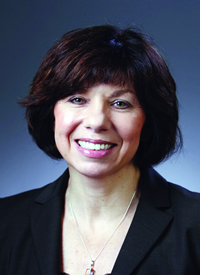
PEDIATRIC RHEUMATOLOGISTS
For the approximately 300 pediatric rheumatologists and pediatric rheumatology trainees in the United States, the Annual Meeting is a must-go-to event, according to Hermine Brunner, MD, MSc, Professor of Pediatrics, Director of Rheumatology at Cincinnati Children’s Hospital, and Scientific Director of the Pediatric Rheumatology Collaborative Study Group (PRCSG).
“Support of the ACR is essential for our community in many ways, and the Annual Meeting provides pediatric rheumatologists with a venue to present research, learn, and exchange ideas with our peers,” she said. “It is our premier networking and key scientific meeting of the year, with most of the science relevant to pediatric rheumatology presented there.”
The ACR sponsors many young physicians and trainees in coming to the meeting, so the Annual Meeting helps attract new talent to the subspecialty, Dr. Brunner said.
As a clinical and translational researcher in pediatric rheumatology with considerable administrative duties, Dr. Brunner has to balance her often-competing interests when determining her meeting itinerary.
“At any one time, almost certainly, there will be more than one session I am eager to attend. Thankfully, there is SessionSelect and recorded sessions accessible online within 24 hours after the live session ends,” she said. “I actually block two hours every week during the academic year so that I can listen to the entire SessionSelect program. The material presented at the ACR meeting is mind-boggling and truly provides the essential, cutting-edge information we need in order to provide the best possible care of children with pediatric rheumatic diseases.”
Sessions Dr. Brunner recommends:
Friday, Nov. 6, and Saturday, Nov. 7 – Pre-Meeting Course
ACR Basic Research Conference: Pathways of Inflammation and Resolution
1:00 – 6:00 pm Friday and 8:00 am – 4:15 pm Saturday
Sunday, Nov. 8
Rheumatology Research Foundation Philip Hench, MD, Memorial Lecture: The Interferonopathies
7:30 – 8:30 am
Clots in Children: Where They Come from and What to Do with Them
8:30 – 10:00 am
Pediatric Lupus Transitional Care: An Interactive Experience
4:30 – 6:00 pm
Monday, Nov. 9
Wearable Biosensors to Advance Rheumatology
7:30 – 8:30 am
T Cell–based Treatments: The Next Generation of Immunotherapies
9:00 – 10:00 am
Meet the Professor Session: Ethical Issues of the Consent Process
4:30 – 6:00 pm
Tuesday, Nov. 10
Childhood Arthritis & Rheumatology Research Alliance (CARRA) meeting
6:30 – 7:30 am
Current Challenges in the Treatment of Systemic Lupus Erythematosus: Hope for the Future
8:30 – 10:00 am
Pediatric Rheumatology Year in Review and Awards (Town Hall Meeting)
9:00 –10:00 am
Next Generation Sequencing: A Novel Tool for Genomic Discovery
2:30 – 4:00 pm
Wednesday, Nov. 11
Chronic Nonbacterial Osteomyelitis (CNO): From the Bedside to the Bench
9:00 – 10:30 am
Novel T Cell Subsets
11:00 am –12:30 pm
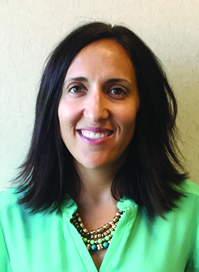
PHYSICIAN ASSISTANTS
For Laurie Hughell, PA-C, MPH, Physician Assistant at the Iowa Arthritis and Osteoporosis Center in Des Moines, Iowa, the Annual Meeting offers an unparalleled opportunity to get the most up-to-date information in rheumatology, as well as a chance to network with other advanced practice clinicians in the field.
“The Annual Meeting is so valuable, because everyone in attendance is dedicated to the field of rheumatology,” she said. “We’re all there with the same goal — to improve care for our patients.”
For first-time attendees, Hughell knows the Annual Meeting can be a little overwhelming, but she says planning ahead and networking will help them get the most out of their experience in San Francisco.
“Start by reviewing each day individually, looking at what topics will be most beneficial to you,” she said. “Use the Annual Meeting App — it’s a practical tool to keep organized and easily tell you if there are any overlaps in timing for any of the sessions you want to attend. Finally, talk with your colleagues, before and during the meeting, about the sessions they’re planning to attend.”
Sessions Laurie Hughell recommends:
Sunday, Nov. 8
Immunology Boot Camp I: The Basics of Targeted Therapies
11:00 am – 12:00 pm
Practicalities of Pain Management
2:00 – 4:00 pm
Monday, Nov. 9
Immunology Boot Camp II: Basic Mechanisms of Autoimmunity
7:30 – 8:30 am
Debate: Opioids for the Treatment of Chronic Non-cancer Pain… Use or Abuse?
11:00 am – 12:00 pm
Pregnancy and Infertility in Rheumatic Disease
2:30 – 4:00 pm
Tuesday, Nov. 10
Meet the Professor Session: The Influence of Sleep on Health & Disease
4:30 – 6:00 pm
Wednesday, Nov. 11
Immunology Boot Camp III: Applying Principles of Immunology to Treatment Decisions
7:30 – 8:30 am
Biosimilars: The Road Ahead
9:00 – 10:00 am
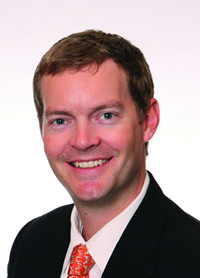
PRACTICE MANAGERS
The world’s premier rheumatology meeting brings together a wide range of rheumatology professionals, resulting in high-quality education and high-yield interactions. For practice managers, “it’s an opportunity to network with colleagues from around the world in an environment of innovation,” said Colin C. Edgerton, MD, of Low Country Rheumatology in North Charleston, SC.
“The Annual Meeting offers an invaluable opportunity for enhanced networking and the sharing of best practices, as well as liaising with the ACR/ARHP to achieve our common goals,” Dr. Edgerton said. “A great effort was made to focus on high-yield topics and virtually all of the sessions in the Business/Administration track should be of great interest to practice managers.”
On Sunday, Nov. 8, at 9:00 am, Dr. Edgerton says that all practice managers should plan to attend the annual Legislative Update session.
“This session offers an update and great insight into the ACR/ARHP legislative priorities and goals, and the involvement of managers is critical in achieving these goals,” he said.
For a grassroots perspective, Dr. Edgerton recommends An Hour Well Spent: Successful Stories of Members Enhancing Patient Care Through State Advocacy, at 1:00 pm Monday, Nov. 9.
“So many of the challenges and opportunities we face in the current health care climate are specific to states and regions,” he said. “We, and our patients, can be very effective at influencing our futures by working with state leadership, if we simply know how. This session is aimed at providing that know-how.”
Also on Monday, from 4:30 – 6:00 pm, Dr. Edgerton looks forward to attending Group Practice without Walls for a discussion of the phenomenon of “supergroups” and other ways to align smaller practices to improve patient care.
“The administrative complexities and burdens upon the practicing rheumatologist have many of us seeking ways to join forces to improve the efficiency of the care that we provide,” Dr. Edgerton said. “This session will feature best practices from success stories both within rheumatology and from other specialties.”
Other sessions Dr. Edgerton recommends:
Sunday, Nov. 8
Navigating Insurance and Prior Authorization
11:00 am – 12:00 pm
How to Manage Difficult Conversations in Your Practice
2:30 – 4:00 pm
Vaccinations: Update and Controversies
4:30 – 6:00 pm
Monday, Nov. 9
RISE Registry: How Is It Impacting Patient Care?
8:30 – 10:00 am
Demonstrating the Value of Rheumatology within Various Payment Models for Practice
2:30 – 3:30 PM
Tuesday, Nov. 10
Daltroy Memorial Lecture: Arthritis Self-Management — Where We Have Been and Where We Are Going
9:00 – 10:00 am
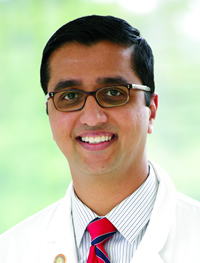
FELLOWS IN TRAINING
Whether it’s a clinical update on Chikungunya or a session on next generation sequencing, the Annual Meeting covers the clinical and research spectrum in rheumatology with “a scope and breadth that is unparalleled,” said to Pravitt Gourh, MD, Clinical Fellow at the National Institute of Arthritis and Musculoskeletal and Skin Diseases in Bethesda, MD.
With so many sessions to choose from, Dr. Gourh advises his fellow fellows in training to manage their schedules carefully and to seek out the sessions that will be most beneficial to their needs. He cautions, though, to be sure and leave time to take advantage of the opportunity to network with peers and some of the world’s leading clinicians and scientists.
“The plenary sessions, for example, are a great opportunity to get updates on the latest in the field, and the poster sessions are great for meeting people,” he said. “The chance to meet and hear from experts from all over the world is what makes this the premier rheumatology meeting.”
Sessions Dr. Gourh recommends:
Sunday, Nov. 8
Hot Topics in Osteoarthritis: Nutraceuticals, Narcotic Analgesics and Behavioral Interventions
8:30 – 10:00 am
Vasculitis Mimics
1:00 – 2:00 pm
Monday, Nov. 9
Tips for Publishing Your Work in a Peer–reviewed Medical Journal
7:30 – 8:30 am
Immunology Update on Cytokine Signaling in Rheumatic Disease
2:30 – 3:30 pm
Demonstrating the Value of Rheumatology within Various Payment Models for Practice
2:30 – 3:30 pm
Career Opportunities in Rheumatology: Making a Choice
4:30 – 6:00 pm
Meet the Professor Session: Rheumatology Practice 101: Starting Out in Practice for the Graduating Fellow
4:30 – 6:00 pm
Tuesday, Nov. 10
Osteoporosis Update
1:00 – 2:00 pm
Pearls and Pitfalls in Fibromyalgia and Central Pain Syndromes
1:00 – 2:00 pm
Wednesday, Nov. 11
Use of Individual Cell and Cell Subset Transcriptomes as Biomarkers of Disease
7:30 – 8:30 am
